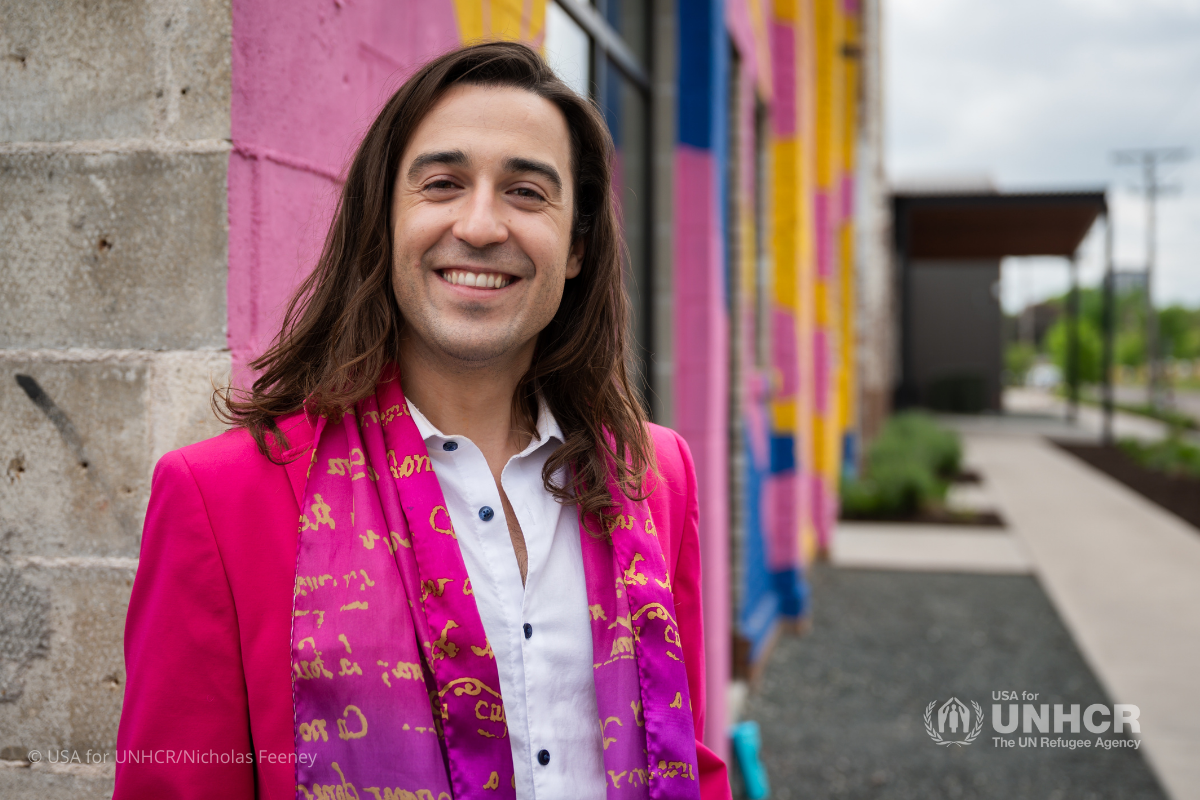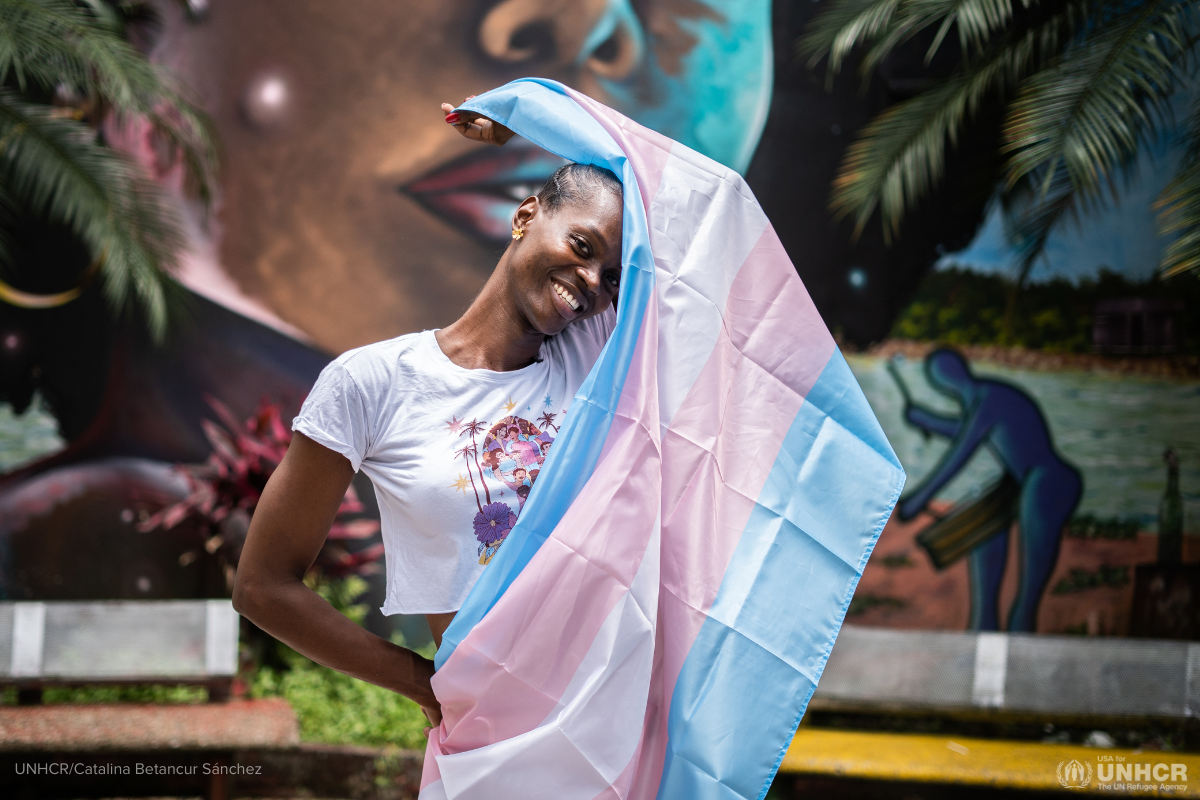Why are LGBTQIA+ people's lives in danger?
Around the world, people have been forced to flee their home countries because of their sexual orientations and gender identities. People who identify as lesbian, gay, bisexual, transgender, queer, intersex, asexual and other marginalized sexual and gender identities (LGBTQIA+) often face discrimination, persecution and threats. Many countries ban same-sex relationships and others implement dangerous laws that put trans and gender nonconforming people’s lives at risk. To live authentically and safely, many LGBTQIA+ people must flee their homes.
Learn about the unique dangers LGBTQIA+ refugees and asylum seekers face and how UNHCR, the UN Refugee Agency, is protecting and uplifting this vulnerable population.
Here’s what you need to know:
1. Why are LGBTQIA+ people’s lives in danger?
2. How many countries have discriminatory laws against LGBTQIA+ people?
3. How is UNHCR protecting forcibly displaced LGBTQIA+ people?
4. What resources are available to learn more about LGBTQIA+ refugees?
5. Why is sharing the stories of LGBTQIA+ refugees important?
Why are LGBTQIA+ people’s lives in danger?
Members of the LGBTQIA+ community face violence and persecution simply because of who they are or who they love. Some countries have laws explicitly discriminating against LGBTQIA+ people, while others have dangerous social norms that leave LGBTQIA+ people vulnerable to threats and violent attacks daily. LGBTQIA+ individuals may also be at a higher risk for sexual and gender-based violence, violence by family members, or intimate partners, depending on where they live.
In addition to the risks of physical violence, LGBTQIA+ people may face higher risks of mental health conditions, such as depression, post-traumatic stress disorder and suicidal ideations and behavior, due to family rejection, isolation and trauma caused by experiencing homophobia and transphobia.
Members of the LGBTQIA+ community must often make the difficult choice between living in secrecy or fleeing their homes. On their journeys to safety, LGBTQIA+ refugees can also face increased risks of sexual and physical assault, discrimination and limited access to essential resources, including safe spaces and aid that is appropriate for their gender identity.
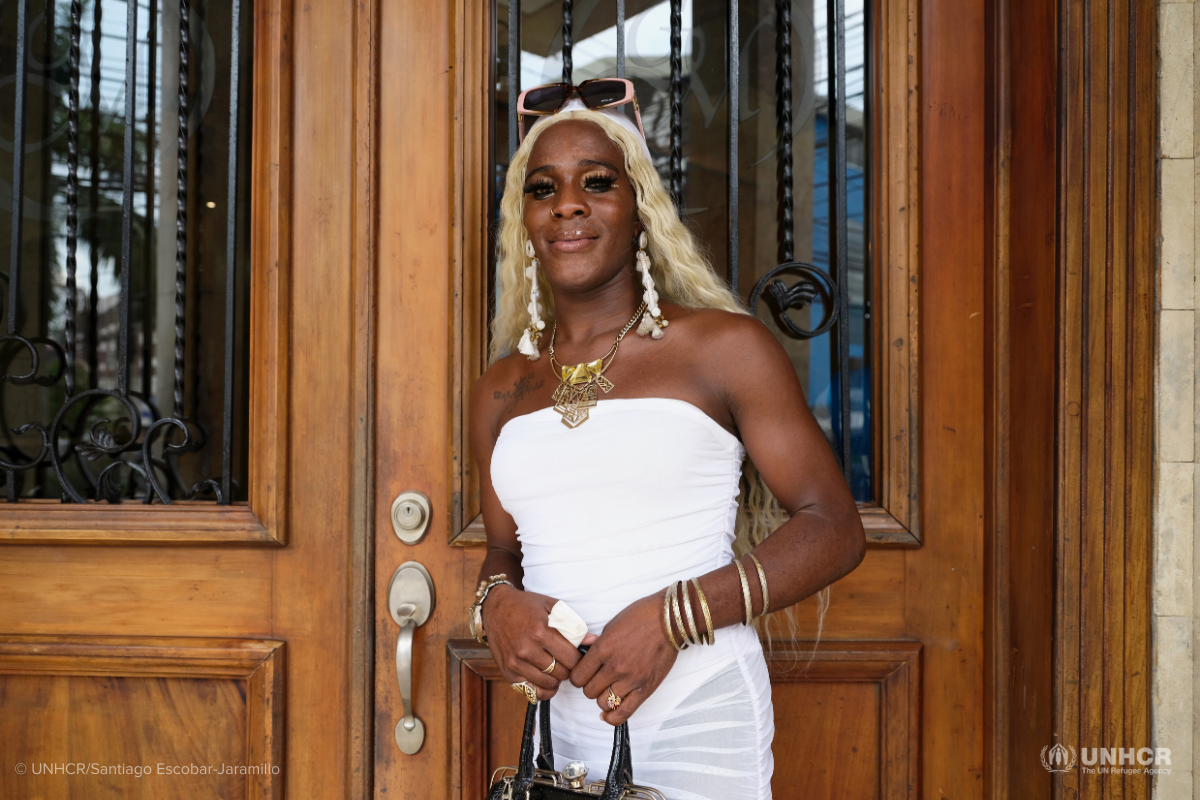
How many countries have discriminatory laws against LGBTQIA+ people?
Although there have recently been great strides in inclusivity and protection rights for members of the LGBTQIA+ community, at least 67 countries have national laws criminalizing same-sex relationships. In addition, at least nine countries have national laws criminalizing certain forms of gender expression that target transgender and gender-nonconforming people. Sentences for breaches of these laws range from fines to the death penalty. LGBTQIA+ people living in these countries are at risk, and many flee to other countries in search of safety.
How is UNHCR protecting forcibly displaced LGBTQIA+ people?
UNHCR is taking vital steps to increase protection for forcibly displaced LGBTQIA+ people. Steps include providing them with information and resources geared toward their specific needs while remaining discreet to protect them from further discrimination. Confidentiality is an important part of protection for LGBTQIA+ refugees, and training UNHCR staff on how to handle cases without exposing refugees’ identities is essential.
UNHCR is also working to improve access to medical and mental health services for LGBTQIA+ refugees. Medical services — including support for gender-affirming care and protection against HIV/AIDS and other sexually transmitted infections — help LGBTQIA+ people maintain their health and wellbeing on their journeys to safety. LGBTQIA+ refugees may have an increased need for mental health care due to family rejection, isolation and trauma caused by experiencing homophobia and transphobia. These experiences are often compounded by conflict and persecution, resulting in higher risks for mental health conditions such as depression, post-traumatic stress disorder and suicidal ideations and behavior. Creating safe and welcoming spaces with comprehensive health services that focus specifically on LGBTQIA+ peoples’ needs can prepare these refugees to move forward with their lives.
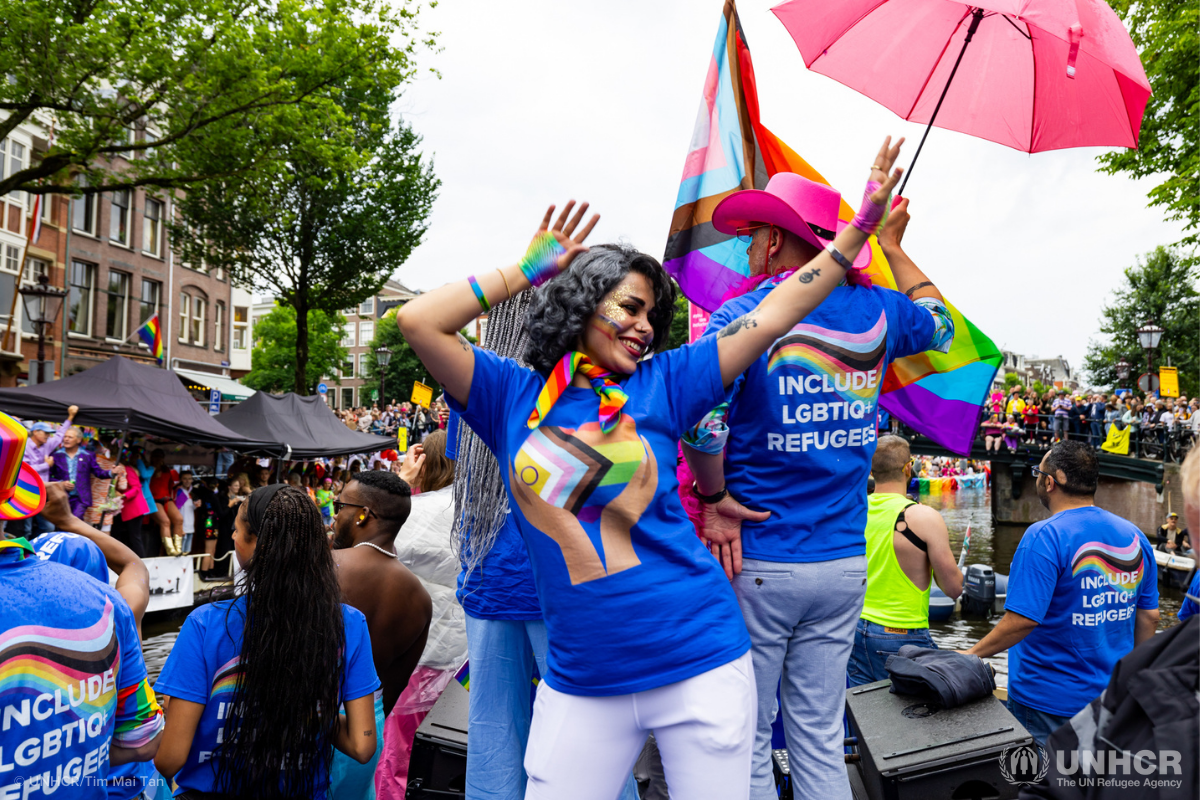
What resources are available to learn more about LGBTQIA+ refugees?
Understanding the circumstances that force LGBTQIA+ individuals to flee is essential in helping end discrimination, persecution and prejudice. Reading about these circumstances from those who have experienced them is one important way to do this.
Here are three books you can read to learn more about the LGBTQIA+ refugee experience, written by displaced LGBTQIA+ authors.
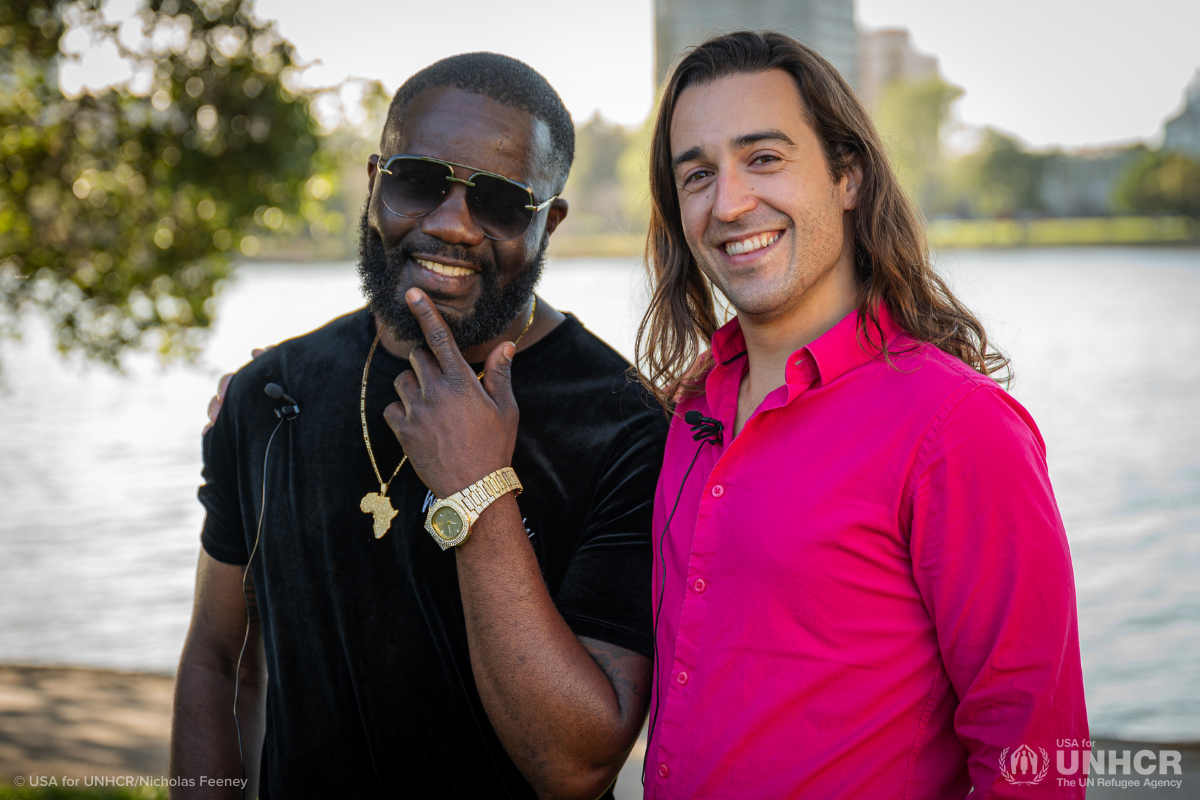
Why is sharing the stories of LGBTQIA+ refugees important?
Storytelling is one of the greatest tools we have to uplift the voices of those who often go unheard and better understand the situations of others. LGBTQIA+ refugees are strong and resilient, even when facing threats and violence, and their stories deserve not just to be told but to be heard by as many people as possible. Amplifying the stories of LGBTQIA+ refugees creates a world filled with more empathy and understanding.
USA for UNHCR shares the stories of LGBTQIA+ refugees, like Emma, who fled from dangerous circumstances in Uganda before eventually resettling in the United States and becoming a refugee advocate. USA for UNHCR also shares the stories of LGBTQIA+ refugee allies, like Kyle, a communications professional at the Organization of Refuge, Asylum and Migration (ORAM), a non-profit based in Minneapolis, Minnesota, that protects and empowers LGBTQIA+ asylum seekers and refugees globally, creating sustainability and systemic change.
With every story we share, more people are made aware of the dire circumstances forcibly displaced LGBTQIA+ people face and are inspired by their incredible journeys. Help uplift the stories of LGBTQIA+ refugees and refugee allies by reading about their journeys on USA for UNHCR’s channels and sharing their stories with friends and family.

